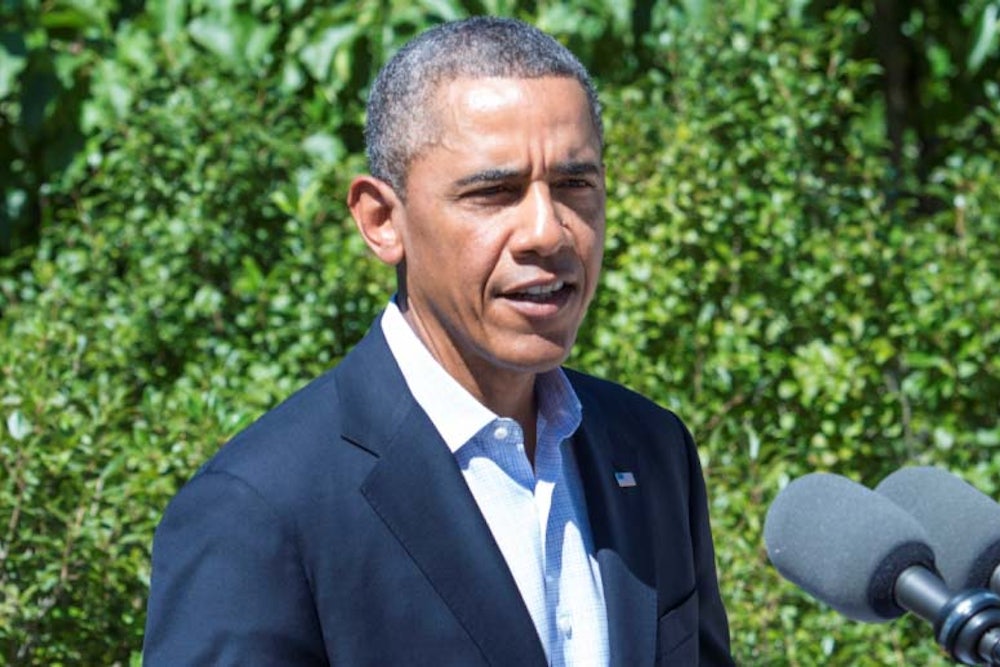I have a pretty broad view of presidential power to use military force abroad without congressional authorization. On that view, which is close to the past views of the Office of Legal Counsel, the planned use of military force in Syria is a constitutional stretch that will push presidential war unilateralism beyond where it has gone before. There are many reasons why it is a stretch even under OLC precedents. The main ones, as I alluded to a few days ago, are (1) neither U.S. persons nor property are at stake, and no plausible self-defense rationale exists; (2) the main non-self-defense U.S. interest that the Commander in Chief has invoked since the Korean War to justify unilateral uses of force—upholding the integrity of the U.N. Charter—appears (as Wells argued) to be disserved rather than served by a military strike in Syria; and (3) a Syria strike would push the legal envelope further even than Kosovo, the outer bound to date of presidential unilateralism, which at least implicated our most important security treaty organization commitments (NATO). (Note that the USG was, as Wells pointed out, never able to publicly articulate a legal rationale for Kosovo. In our more legalistic age 14 years later, such silence likely won’t be possible, but it also won’t be possible to rely on Kosovo as a constitutional precedent without explaining why the invasion was lawful at the time.)
All of which raises the questions: Why is President Obama going to act unilaterally? Why doesn’t the man who pledged never to use force without congressional authorization except in self-defense call Congress into session to debate and authorize the use of force in Syria? Why doesn’t he heed his own counsel that “[h]istory has shown us time and again ... that military action is most successful when it is authorized and supported by the Legislative branch,” and that it is “always preferable to have the informed consent of Congress prior to any military action”? Why is he instead rushing to use force in a way that will set a novel constitutional precedent for presidential unilateralism that will far outlive his presidency? Since U.S. intervention in Syria portends many foreseeably bad consequences, and because there is so little support in the nation for this intervention, why not get Congress on board—not just to legitimate the action, but also to spread political risk? Why exacerbate the growing perception—justified or not—of a presidency indifferent to legal constraints? Why not follow the example of George H.W. Bush, who sought and received congressional authorization for the 1991 invasion of Iraq, or George W. Bush, who did the same for the 2003 invasion of Iraq? Or to take an example more on point, why not follow David Cameron, who (embarrassingly for the President) recently called Parliament into session to debate and legitimate Britain’s planned involvement?
There are many answers, including: the President now has a very broad view of his unilateral war powers; this military action is being rushed, and formal congressional approval is not a priority in light of the President’s self-induced credibility crisis and the overwhelming military and diplomatic demands of planning the intervention; the White House doesn’t want to expend (or doesn’t have) the resources that seeking and winning congressional approval would require; it doesn’t want to suffer through the formal national debate; and it fears it might lose the debate (either outright, or with a limitation on presidential power), which would be politically and legally humiliating. None of these are good reasons from a constitutional perspective, and in light of the costs of unilateralism. And the White House is mistaken to think that informal briefings to congressional leaders are a substitute, even a near-substitute, for formal public congressional debate and authorization. Such secret ex ante deliberations lack constitutional significance, and they won’t help one bit politically once things go contrary to plan, as they always do.
Jack Goldsmith teaches at Harvard Law School and is a member of the Hoover Institution Task Force on National Security and Law. This piece originally appeared in Lawfare.
